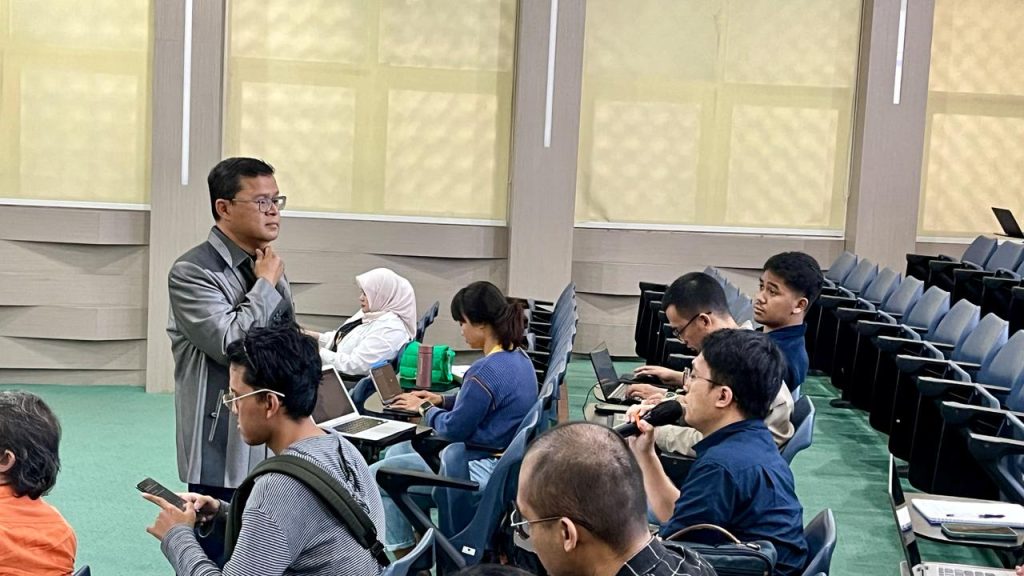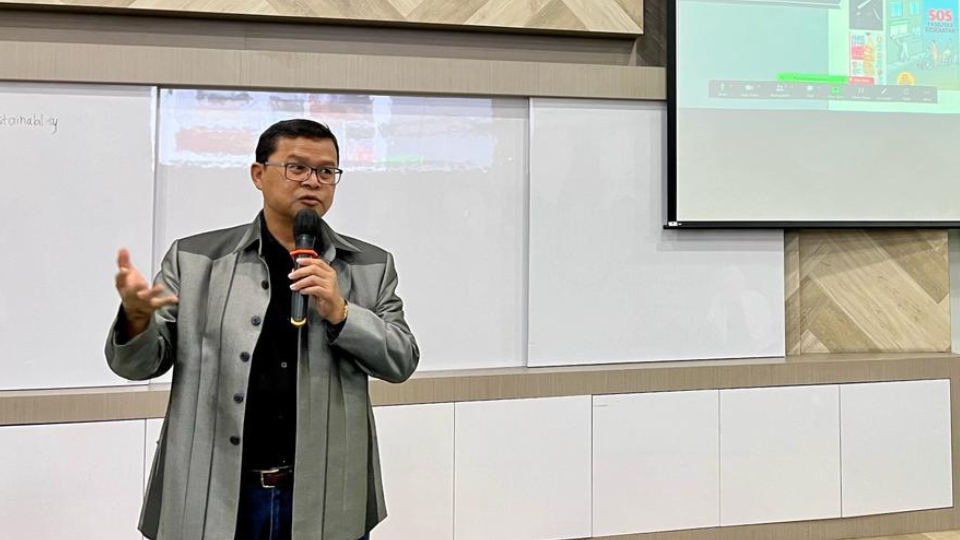“What makes someone a leader?” Dicky Budiman, COVID-19 analyst and Indonesian risk communication expert asked the participants of the guest lecture “Ethics, Leadership, and Sustainability in Global Perspective” at the SBM ITB, Bandung, on Friday (22/3). Various forms of power, such as communication, family power, political power, and so on, encourage individuals to occupy leadership positions.
Dicky started his lecture with questions about ethics. What is ethics, and why do we need it? Ethics often originate from people with the same responsibilities, so professional groups are often used as the primary source of ethical codes. A code of ethics in a profession explains what is wrong and right in a particular professional field.
However, some professions do not have a clear code of ethics, so profession holders must determine for themselves what is right and what is wrong. World political leaders are examples of this scenario. Dicky focused on two world leaders during COVID-19: President Donald Trump of the United States and Prime Minister Jacinda Ardern of New Zealand.
Power for political figures comes from public trust, which is fostered through empathy, the ability to feel other people’s emotions. During the COVID-19 crisis, Donald Trump, through public communication channels, sent messages that ignored, denied, belittled, and even ridiculed the pandemic.
President Trump’s public statements ignored or downplayed the severity of the pandemic, despite a rising death toll and calls from U.S. health officials to implement clear crisis mitigation strategies. The lack of empathy in his messages erodes the U.S. public’s trust in Trump’s leadership.
Instead, Jacinda Ardern crafted messages encouraging unity of New Zealanders in the face of COVID-19. Additionally, Ardern and her cabinet cut their salaries by 20% in solidarity with those whose incomes have decreased due to the pandemic.
Ardern’s words and actions resonated with New Zealanders, strengthening trust and compliance with health guidelines. As a result, New Zealand became one of the first countries to report zero cases of COVID-19.
Decision-making in a crisis is closely related to ethical principles. According to Dicky, nine values need to be addressed in ethical decision-making: equality and social justice, no harm, welfare and happiness, privacy and respect, public security, sustainability, empowerment, integrity, and honesty, as well as collective and individual responsibility. Ignoring these principles often has unintended consequences.
Dicky highlighted that cultural aspects also play a role in ethics. “Each country has its values,” he commented. However, the principles of ethical decision-making are a universal set of principles relevant in all contexts, both global and local.





